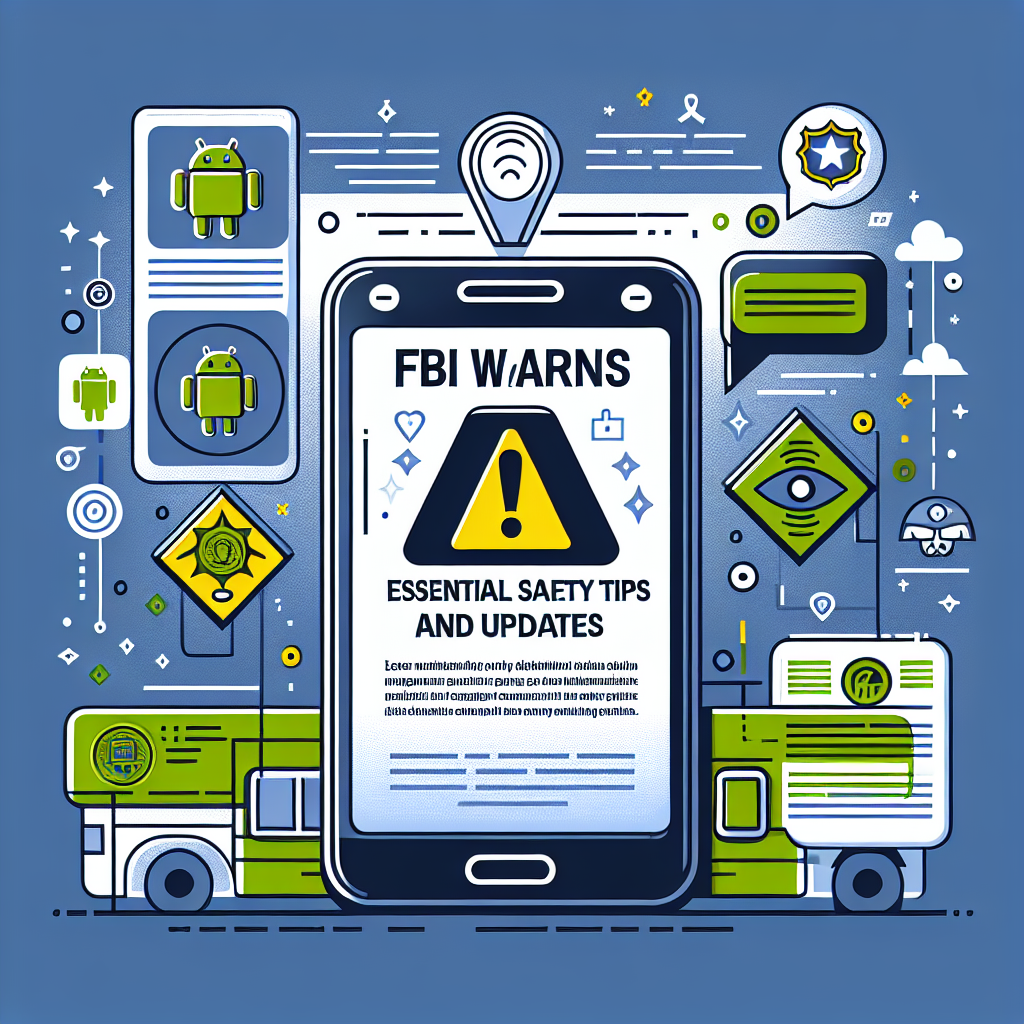# FBI Warns iPhone & Android Users: Essential Safety Tips and Updates
In today’s digital age, smartphones have become an integral part of our lives, storing a plethora of personal information from contacts and messages to banking details and photos. However, with convenience comes the risk of security threats and cyber attacks. Recently, the FBI issued a warning to iPhone and Android users about potential vulnerabilities and the need for essential safety tips and updates to protect their devices. In this article, we will delve into the key points outlined by the FBI and provide you with actionable steps to safeguard your mobile phone.
## Why is Mobile Phone Security Important?
Mobile phones have evolved into mini computers, containing sensitive data that can be targeted by cybercriminals. From malware and phishing attacks to privacy breaches and data theft, the threats to mobile phone security are constantly evolving. Keeping your device and personal information secure is crucial to prevent unauthorized access and protect your privacy.
### Update Your Operating System and Apps Regularly
One of the primary ways to ensure the security of your iPhone or Android device is to keep your operating system and apps up to date. Software updates often include security patches and bug fixes that address vulnerabilities and enhance the overall security of your device. Set your phone to automatically update the software to stay protected against the latest threats.
### Enable Two-Factor Authentication
Two-factor authentication adds an extra layer of security to your mobile phone by requiring a second form of verification, such as a passcode or biometric data, in addition to your password. This additional step can prevent unauthorized access even if your password is compromised. Enable two-factor authentication for your email, social media accounts, and banking apps to bolster security.
### Be Cautious of Phishing Attempts
Phishing remains a prevalent method used by cybercriminals to trick users into revealing sensitive information. Be wary of emails, messages, or calls that ask for personal details or prompt you to click on suspicious links. Avoid sharing personal information or clicking on links from unknown sources to protect yourself from phishing attacks.
## Frequently Asked Questions
### 1. How can I check if my phone is secure?
You can check the security status of your iPhone or Android device by reviewing the settings, enabling security features like biometric authentication and encryption, and running regular security scans with trusted antivirus software.
### 2. What should I do if my phone is lost or stolen?
If your phone is lost or stolen, immediately remotely lock or erase the device using features like Find My iPhone or Find My Device. Contact your service provider to report the loss and change your passwords for accounts linked to the device.
### 3. Are there any specific security apps recommended by the FBI?
While the FBI does not endorse specific security apps, they recommend using reputable antivirus software, password managers, and encryption tools to enhance the security of your mobile phone.
## Conclusion
Protecting your iPhone or Android device from security threats is essential to safeguard your personal information and privacy. By following the FBI’s safety tips and updates, you can proactively secure your mobile phone and reduce the risk of falling victim to cyber attacks. Stay vigilant, keep your software up to date, and practice safe browsing habits to stay one step ahead of potential threats. Take control of your device’s security and prioritize your digital safety.
**Call-to-Action**: Are you concerned about the security of your mobile phone? Share your thoughts or questions in the comments below and start a conversation about mobile phone security. Stay informed and stay safe!

